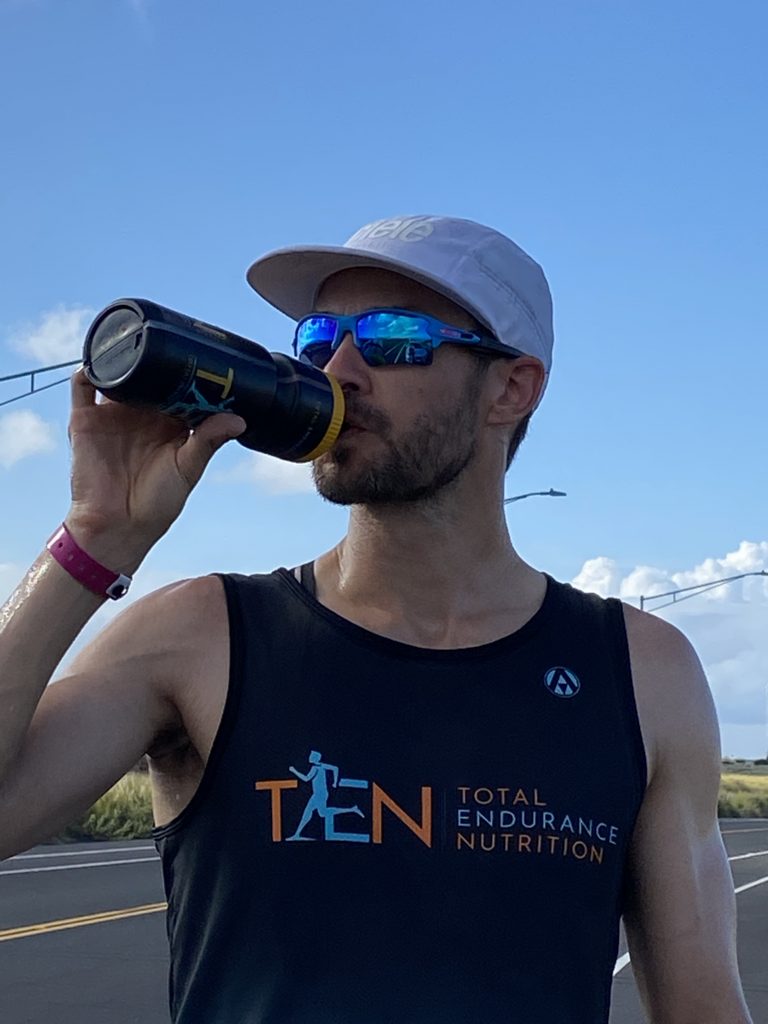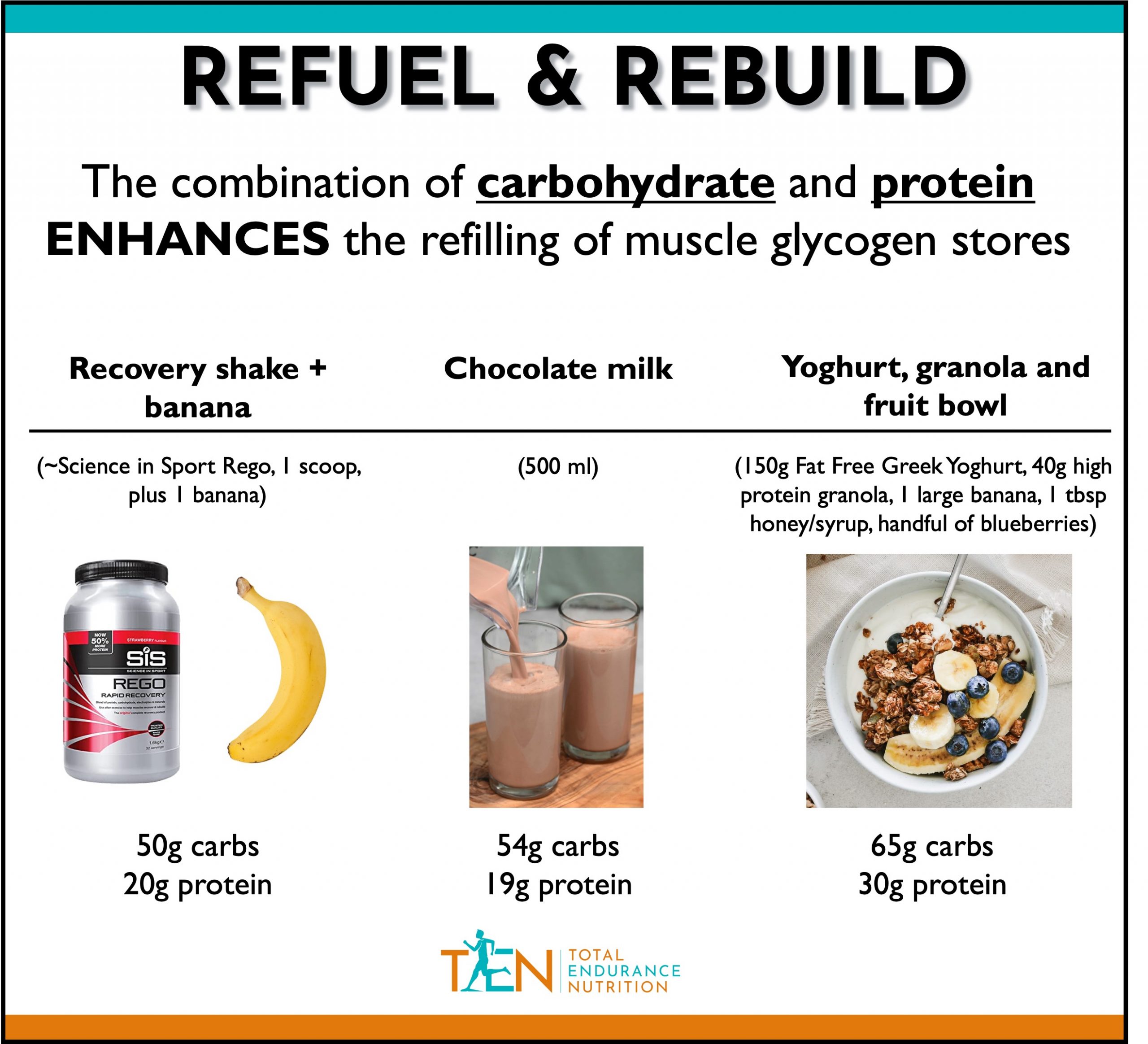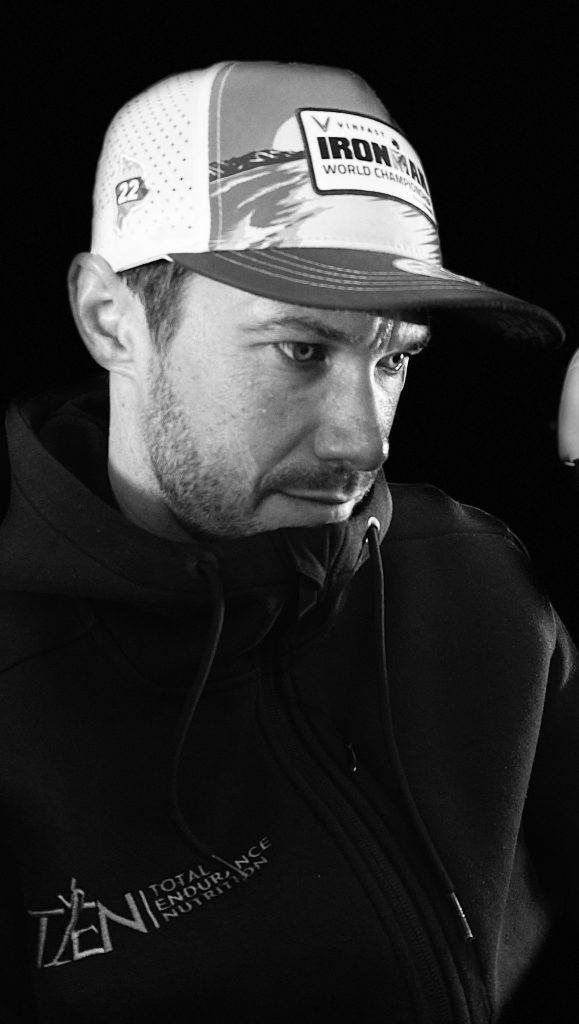Dr Sam Shepherd, Total Endurance Nutrition Co-Director & Performance Nutritionist

Optimising Recovery
At Total Endurance Nutrition, one of the most common issues that we see athletes struggling with is how to properly recover from their training. Whether professional or an age-group athlete, understanding how to optimise recovery and developing a plan to achieve this are critical to your progression. Here, we explain why getting the right nutrition will help you to recover better and reap the rewards of training, and delve into what key principles you should follow when it comes to recovery and tips on how to implement these into your training plan.
Why focus on recovery?
Before we get into the details, lets take a moment to outline why developing and implementing an appropriate recovery strategy can benefit you and your training.
- Support CONSISTENCY of training
- Enhance the QUALITY of key sessions
- Optimise the ADAPTATION to the training stimulus
At the elite level, better recovery means being able to tolerate a greater training volume. At the age-group level, having a robust recovery plan means you can execute quality training sessions on top of the demands placed on you from work and family commitments. In fact, I would argue that age-groupers can actually benefit the most from dialling in their recovery nutrition plan. Fundamentally though, optimising recovery is a key part of the larger picture that allows you to train consistently.
The 4 R’s of recovery
It is important to point out straight away that both nutrition and sleep are the basis for recovery and should be the main focus. Of course, there are other approaches which may be beneficial at times (e.g. massage, compression, water immersion therapies etc.). But without a solid foundation of adequate sleep and appropriate nutrition these things will not be effective. From a nutrition perspective, there are a number of supplements that could support recovery. But again, these are the ’cherry on top’ of a good nutrition plan; supplements simply can’t make up for, or be used instead of, poor nutritional habits.
For recovery there are 4 key areas to consider, and we’ll discuss the key principles of each to help you optimise your recovery.
Rest
Unfortunately, without adequate rest and sleep, you’re going to struggle to recover. Get into good sleep habits (e.g. not looking at your phone ~30 mins before you intend to sleep) and aim for 8-10 hours of sleep per night – this is the time the body repairs and adapts to the training.
Refuel
Carbohydrate is stored in the liver and muscle as glycogen, but these stores are relatively small and together provide only ~2000 to ~2500 calories worth of energy. When we perform hard and/or long duration training sessions these stores become depleted. Consuming adequate amounts of carbohydrate after the session is critical to help replenish these muscle and liver glycogen stores ready for the next training session. The nutrition guidelines suggest to consume 1 to 1.2 grams of carbohydrate per kg bodyweight (i.e. for someone who is 70 kg, they would need 70-84 g of carbohydrate) in the hour following the session. For rapid refuelling these should mainly be simple carbohydrates, because they are taken up more quickly from the gut into the circulation and then into the muscle and liver to be stored as glycogen. If you’re eating a meal soon after the session then including some simple carbohydrates like white rice, potatoes or white pasta are a great option.

Rebuild
We typically think about protein to support muscle growth. But protein is incredibly important to help our muscles adapt – for example, it helps build new mitochondria which are the cell power house and are linked to our VO2max and aerobic thresholds. So getting adequate protein after our training is essential. Aim to consume 20-30g of protein in the hour following the session, and ideally with a high number or blend of amino acids. Amino acids are the building blocks of a protein, and there are 20 different types; 11 of which our body can make on its own, but the other 9 need to come from food. So choosing foods with all 9 essential amino acids (often called ‘complete proteins’) is important here, and includes things like eggs, dairy products, poultry, fish, beef and soy products (e.g. tofu, edamame). If you’re vegetarian or vegan, then eating a range/variety of ‘incomplete protein’ foods should mean that you still get these essential amino acids in your diet.
From a recovery point, getting adequate protein after a session also helps us to better store and replenish glycogen in the muscles. So adding 20-30g protein to your carbohydrate-rich recovery meal/snack can actually lead to even better recovery! See below for some examples of easy post-training snacks.

Rehydrate
Replacing the fluid and electrolytes we lose through sweat during a session is also important for recovery. When we are dehydrated we get a decrease in blood volume. But having a lower blood volume will mean that the delivery of nutrients – such as amino acids or glucose – to the muscles will be impaired. As a result, our ability to recover will be reduced. To overcome this, we should aim to consume 150% of the fluid that we lose via sweating in the 1 to 2 hours after the session, and include some electrolytes in our drinks.
…we should aim to consume 150% of the fluid that we lose via sweating in the 1 to 2 hours after the session, and include some electrolytes in our drinks.
What about ‘pre-covery’?
So far, we’ve focused on what we can do immediately after a session – and this is typically the period we associate with recovery. But optimal recovery is also dependent on what we do during a session too. For example, if we under-fuel a session then it will take longer – and much more energy – to recover our muscle and liver glycogen stores after a session. If we don’t get enough protein in the diet on a day-to-day basis, then again, this will also mean that we don’t recover properly.
On this last point, we ask athletes to eat 1.5 to 2.0 g of protein per kg body weight per day, and make sure that this is spread evenly through the day. So, for a 70kg person they would need to eat 105 to 140g of protein per day. And they would spread this evenly over 4 to 6 eating occasions (e.g. 30g protein at breakfast, lunch and dinner, and 20g of protein as part of a mid-morning and mid-afternoon snack). Getting this right on a day-to-day basis provides the foundations for recovery and consistent training.

Take home message
The advice we give athletes is to view recovery (both sleep and nutrition) as an extension of the training they are doing – the session isn’t finished until recovery has been taken care of. In this way, they build better habits, not just around recovery after a session, but also about fuelling correctly and developing good day-to-day nutrition. This is the key to supporting consistent training and progression, which then leads to a more enjoyable and rewarding experience of being an athlete.

About the author
Sam specialises in nutrition for endurance sports, particularly triathlon, cycling and running. He works with a range of athletes from enthusiasts to those competing at the elite level, to refine and optimise their diet and nutrition plans to benefit both their lifestyle and maximise sports performance. This advice is built on 14 years’ experience as a researcher, lecturer and practitioner in the exercise physiology and nutrition field. He currently works at Liverpool John Moores University as an Associate Professor in Exercise Metabolism & Nutrition, and is the co-founder of Total Endurance Nutrition.
Want your content featured?
If you would like to input to our Coaches’ Hub – or there is a topic you would like us to write about – why not send us your ideas? We are always looking for good content and it helps to promote your business.
Email: caroline@trainxhale.com

